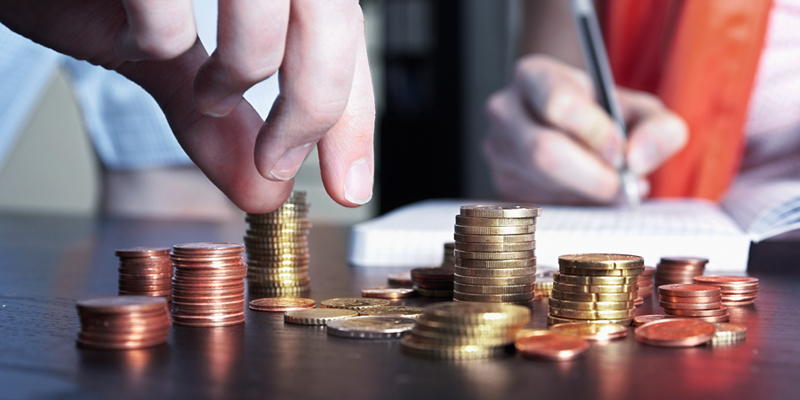The federal government through the Nigerian Content Development Monitoring Board (NCDMB), yesterday floated a $50 million Nigerian Content Research and Development Fund (NCRDF) to boost innovation in the country.
The government noted that the 0.2 per cent currently devoted to Research and Development (R&D) in the was very negligible, noting that developed nations such as the United States, China, Japan, Germany, and South Korea spend between 2.5 to 4 per cent of their annual Gross Domestic Production (GDP) on research.
It also noted that even developing nations such as India, Malaysia and Brazil spend between 0.7 per cent and 1.2 per cent, whereas Nigeria continues to lag well behind by deploying only about 0.2 per cent of its GDP.
Speaking at the second NCDMB Research and Development Fair and Conference in Yenagoa, Bayelsa state, the Minister of State, Petroleum Resources, Chief Timipre Sylva, explained that underfunding of R&D was reflecting on Nigeria’s overdependence on foreign goods and services.
The event also witnessed the formal launch of the NCDMB 10-year R&D roadmap, anchored on eight success pillars, namely: funding, infrastructure, capability, commercial framework, co-llaboration, governance, legal framework and enforcement.
Represented by the Permanent Secretary at the ministry, Dr. Nasir Gwarzo, Sylva argued that the situation remained unsustainable if the country was serious about building a national technological capability that will drive economic growth.
“To put certain realities into context, there is a need to do a comparative analysis. Currently, developed nations such as the USA, China, Japan, Germany, and South Korea spend between 2.5 to 4 per cent of their annual Gross Domestic Production (GDP) on R&D, while developing nations like India, Malaysia, Brazil spend between 0.7 per cent to 1.2 per cent. Nigeria lags well behind by spending only about 0.2 per cent of its GDP on Research & Development,” he stated.
Sylva added that it was important to clear the misconception that funding of research was the sole responsibility of national governments, arguing that rather, big spenders on research and development globally come from the private sector.
“In 2019, private sector practitioners in the ICT hardware and electronic equipment sector, pharmaceutical & biotechnology sector, automobiles and components sector cumulatively spent $528bn on R&D, representing 22 per cent of the $2.3 trillion global R&D spend. In India, the private sector contributed 38.1 per cent of the country’s R&D spend.
“Still on funding and in line with our commitment to provide leadership, I am pleased to officially announce the creation of the Nigerian Content Research and Development Fund with an initial seed capital of $50 million,” he announced.
He explained that the fund was designed for application in the establishment of research centres of excellence, funding support for research commercialisation, funding support for basic and applied research as well as the endowment of professorial chair.
The minister noted that though clearly insufficient, it signified the premium the present administration places on growing the nation’s research and development capabilities. He encouraged the private sector to replicate the global practice by complementing the NCRDF and actively support the government’s drive in upscaling its national research architecture
According to him, with the Petroleum Industry Act (PIA), a governance framework for the industry with clear delineation of roles between regulation and profit-centric business units has now been established.
Members of the newly-constituted NCRDC included Dr. John Erinne, Mr. Ijuwe Albert ,Mr. Rosario Osobase , Dr. Noel Biodun Saliu, Alhaji Aliyu Adamu and Dr. Tandama Abu and will be headed by the Executive Secretary, NCDMB, Mr Simbi Wabote.
Sylva also commissioned the NCDMB Technology Incubation and Innovation Centre, which will provide the platform for idea generation, incubation and acceleration of innovative ideas to the marketplace.
Wabote in his comments, stressed that an analysis of global practices of R&D revealed that the combined spend of just five countries makes up 63.5 or cent of the entire global spend and also account for over 50 per cent of the global GDP.
“Africa, on the other hand, accounted for less than one per cent of the global R&D spend while its GDP is only 3 per cent of the global GDP. You will agree with me that there is a nexus between the spend on research and development and economic prosperity,” he argued.
He stressed that the authors of the Nigerian Oil and Gas Industry Content Development Act (NOGICD) of 2010 recognised the importance of research and development and included key provisions in the Act.
He stated that the board commenced the implementation of the 10-year strategic roadmap in 2018, which seeks to increase the level of Nigerian content in the oil and gas industry to 70 per cent by the year 2027.
The ES described R&D as the core of the industrial revolutions the world has witnessed over the ages, saying that it was important that countries deploy means of nurturing home-grown solutions as a means of wealth creation and growth.
In his contribution, the Group Managing Director, Nigerian National Petroleum Corporation (NNPC), Mallam Mele Kyari, disclosed that the corporation was happy to incorporate R&D into its processes, adding that as a technology-based industry, the NNPC had revved up research efforts to make it suitable for the future.
The Director, Department of Petroleum Resources (DPR), Mr. Sarki Auwalu, in his comments, noted that the oil and gas industry must begin to see the world with new eyes which also presents an array of opportunities for learning and knowledge sharing.
He added that it was critical for the global oil and gas industry to remain efficient and innovative in responding to the emergence of cheaper renewables to sustain the relevance of hydrocarbon resources to the global energy mix.
“Therefore, research and collaboration from all stakeholders is crucial to remain competitive and to meet safe, clean and sustainable energy demands of the future,” he said.

 Naira4 weeks ago
Naira4 weeks ago
 News3 weeks ago
News3 weeks ago
 Education4 weeks ago
Education4 weeks ago
 Social Media4 weeks ago
Social Media4 weeks ago
 Technology4 weeks ago
Technology4 weeks ago
 Investment4 weeks ago
Investment4 weeks ago
 Dividends4 weeks ago
Dividends4 weeks ago
 Economy4 weeks ago
Economy4 weeks ago















